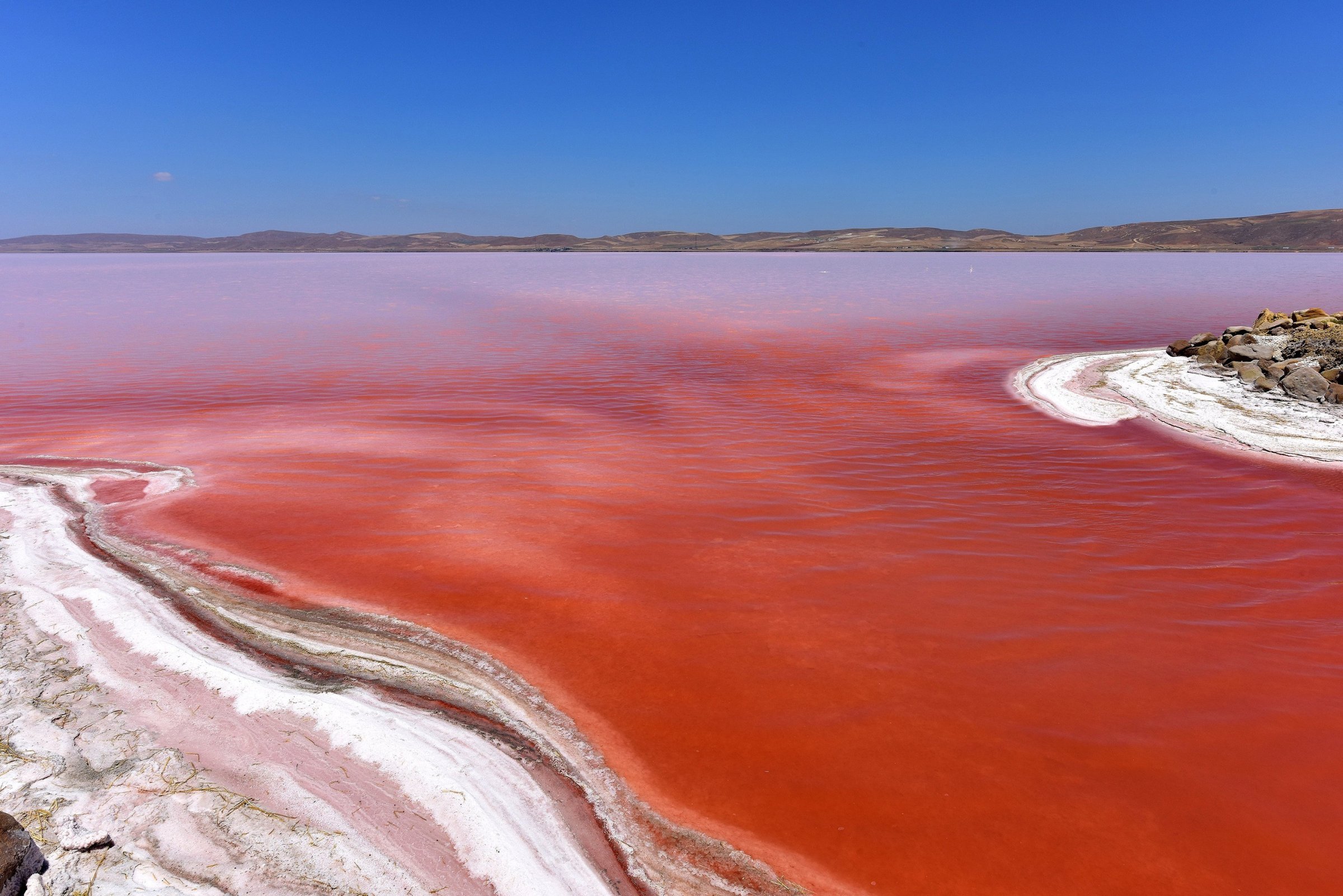
By Justin Worland and TIME Photo
A salt lake in Turkey turned completely red as a result of an algae bloom.
Lake Tuz Gola, the country’s second-largest lake, has been evaporating in the hot summer, Stony Brook University marine ecology research professor Christopher Gobler told ABC News. The evaporation has killed plankton, which eat algae, allowing the sea organisms to thrive.
“The algae is thriving and will probably [be] red until the lake fully evaporates, probably next month during the peak of summer heat,” he said.
Tourists often walk across the dry lake during summer, and water returns in the winter.
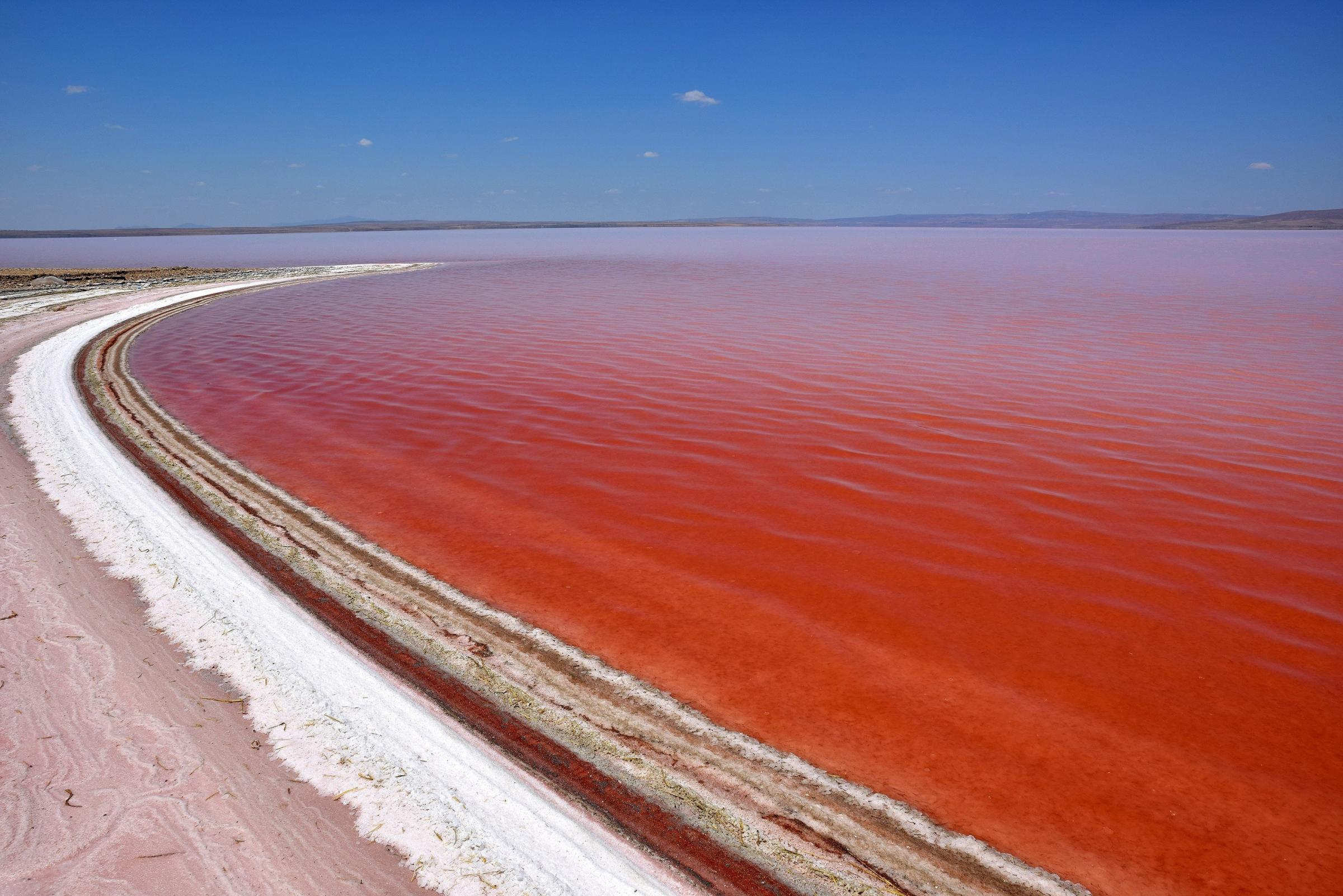
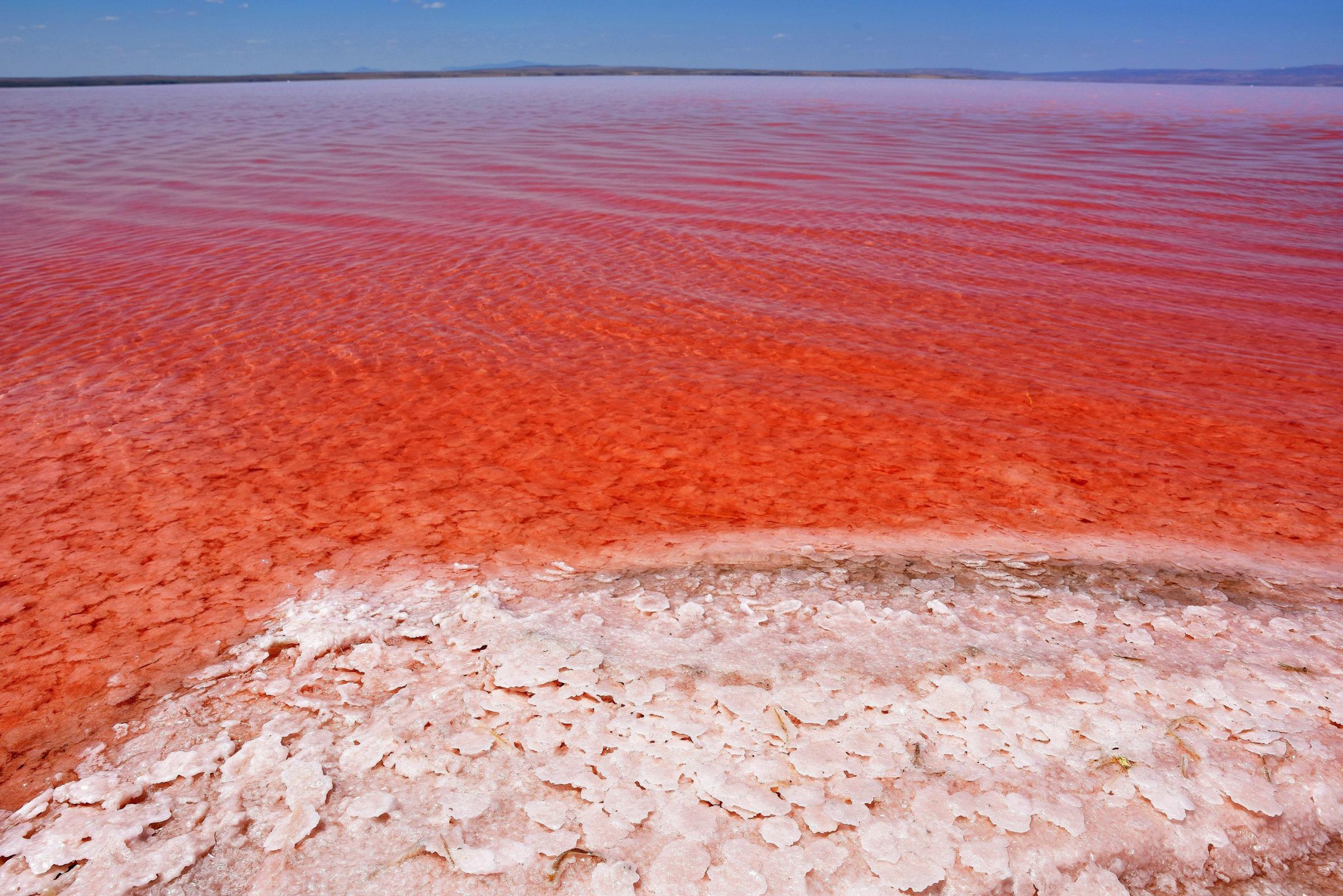
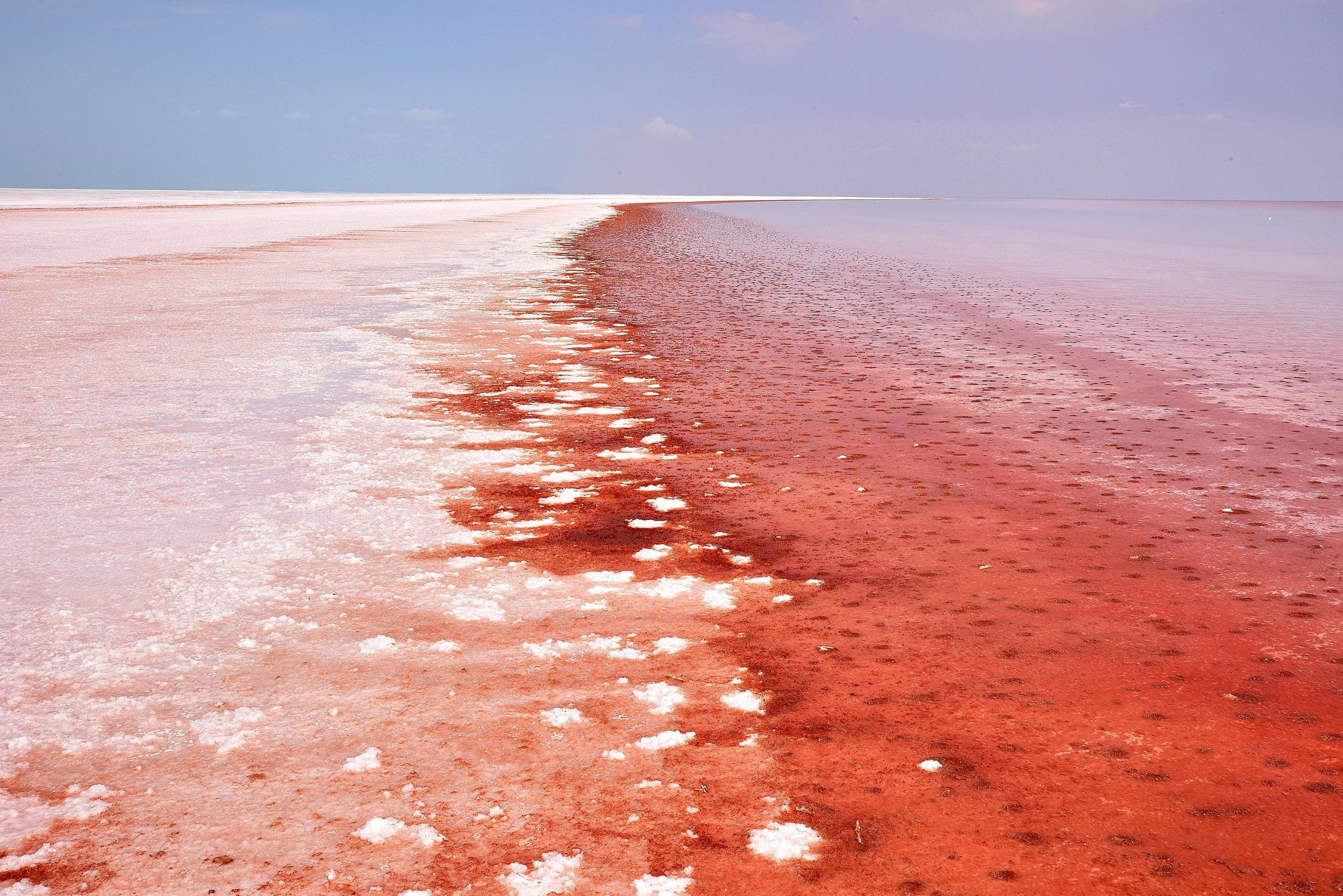
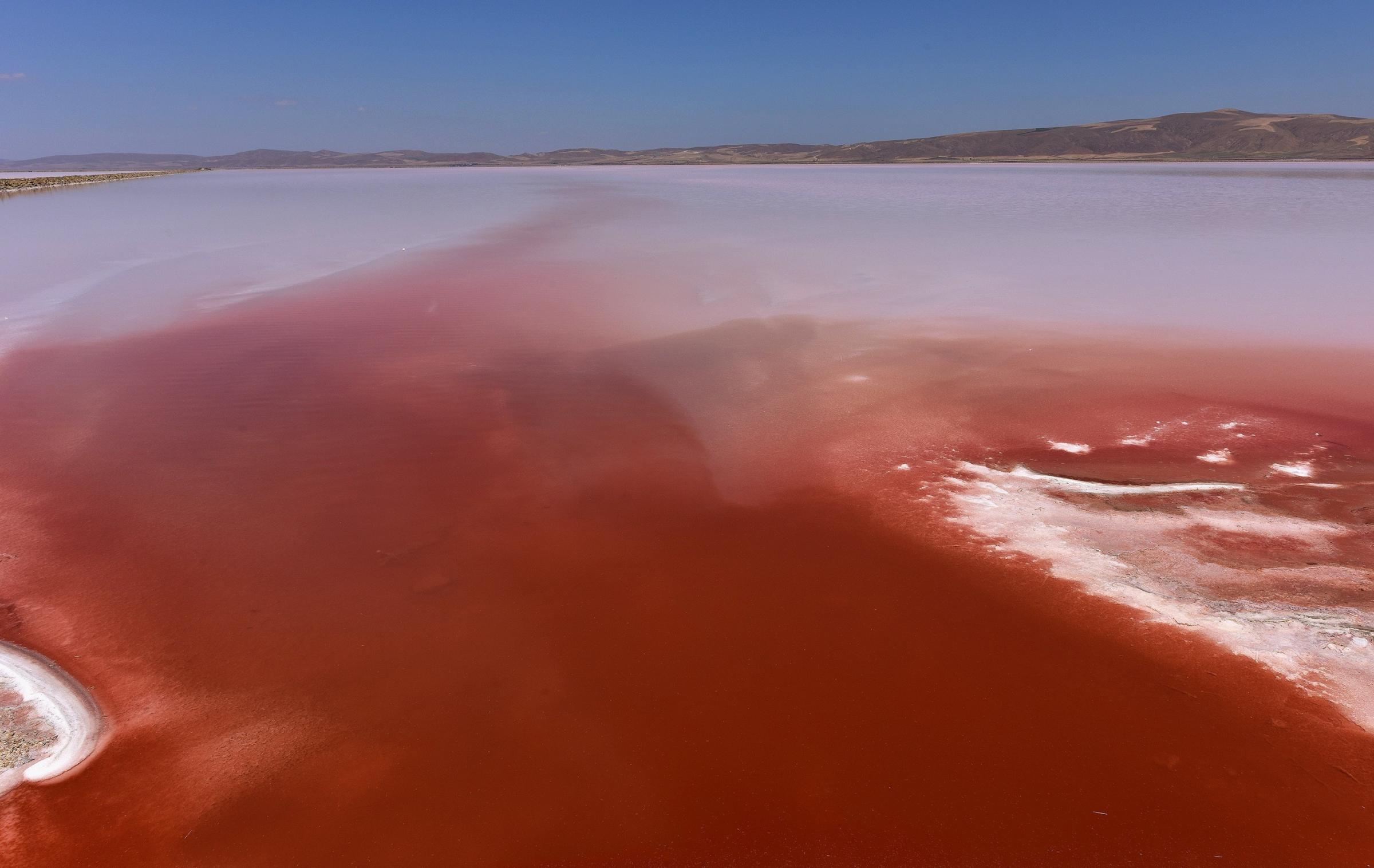
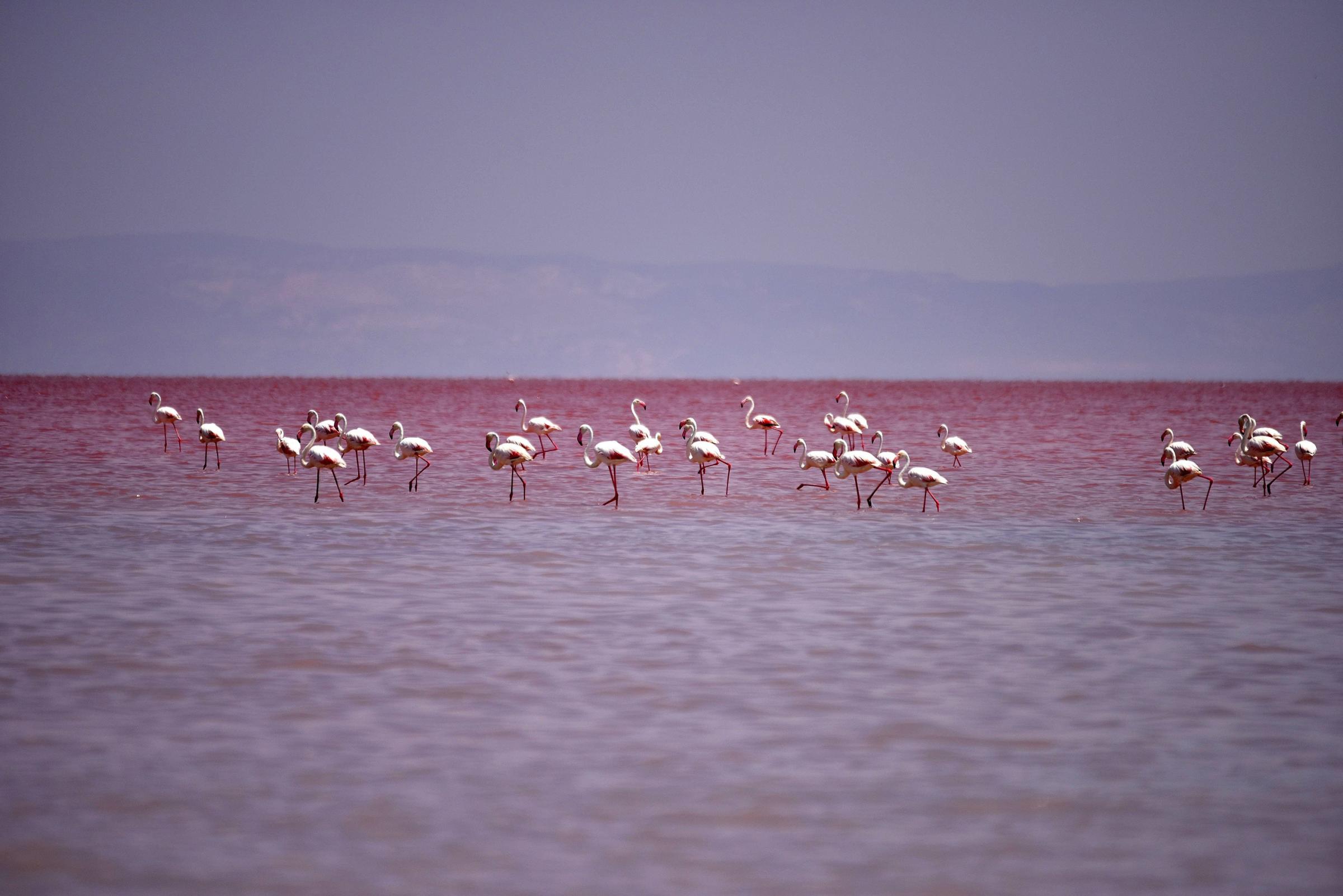
More Must-Reads from TIME
- Why Biden Dropped Out
- Ukraine’s Plan to Survive Trump
- The Rise of a New Kind of Parenting Guru
- The Chaos and Commotion of the RNC in Photos
- Why We All Have a Stake in Twisters’ Success
- 8 Eating Habits That Actually Improve Your Sleep
- Welcome to the Noah Lyles Olympics
- Get Our Paris Olympics Newsletter in Your Inbox
Write to Justin Worland at justin.worland@time.com